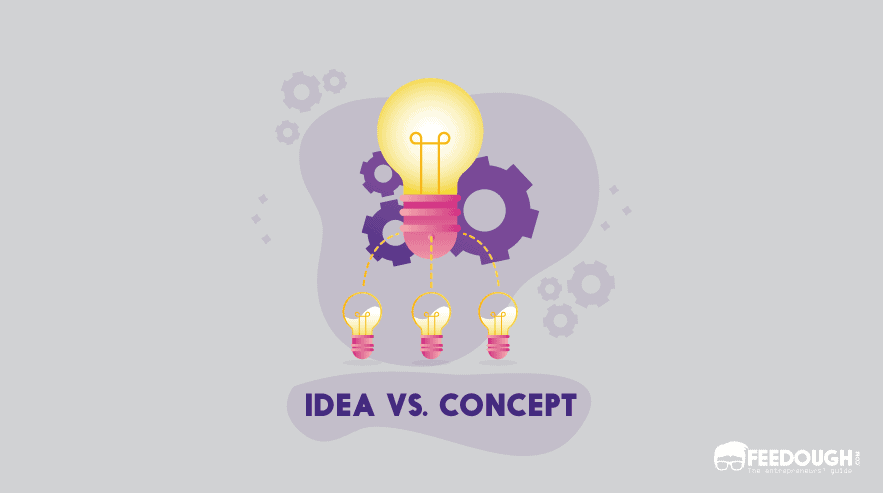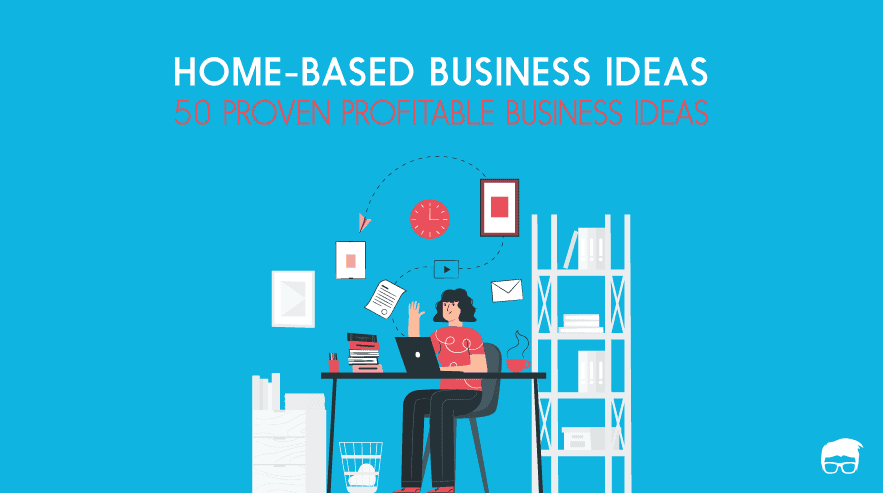I’d like to break this to you at the earliest:
Having a good idea for a business isn’t enough to make it a runaway success. You need to create a concise business concept if you ever want it to get off the ground.
Have a great new idea?
It is risky to directly to start based on the idea alone. A business is not built on ideas alone, but on well-defined concepts and plans. So instead, work on turning your ideas into tangible concepts that you can incorporate into your business plan.
What Is A Business Concept?
A concept can be thought of as a well-defined idea that has been tested for its credibility.
A business concept is an idea for a business that has information such as the service/product, the target audience, and a unique value proposition that gives a company an advantage over competitors.
When it comes to businesses, there exists a clear distinction between idea and concept.
Difference Between Idea And Concept
An idea can be referred to as a “mental construct” of a business possibility/opportunity that you come up with.
A concept can be viewed as a form of an idea that has gone through the process of fine-tuning and is less inconsistent.
A Business Concept is usually a statement or two that captures the essence of your product or service
Here’s an example.
Business Idea: I would like to start a fitness centre.
Business Concept: I plan on starting a fitness centre that focuses on providing Zumba classes to working women.
Since you figured out that there is a lack of Zumba centres in your locality, you have focused your sights on Zumba as your business concept rather than starting a generic fitness centre. Moreover, you did your research and found out that these centres are well preferred by working women, hence you decided them to be your target audience. This concept can be refined upon further analysis and help in creating a solid business model.
Here’s another example-
Business Idea: I would like to start a hotel chain.
Business Concept: A line of affordable hotels that caters to a broad range of customers needs including families, seniors and pet owners.
You have a defined target audience and plan to focus on providing affordable rooms. You could, upon further research, add other things like family-frequented hotels to feature play areas for kids and so on.
It’s time you start converting your ideas into concepts. Here’s how you go about –
Steps to turn your Ideas into Concepts
The first course of action is to elucidate upon your idea by taking the following steps along with answering the usual questions like “What is your offering?” and “What does your product/service do?”.
Find Your Target Market
Find out segment within the business’s serviceable market. Figure out your target market. Find out where and to whom you’d like to sell your products and services and direct your marketing efforts to.
When you go about finding and defining your target market, make sure you:
- Analyze Your Customer Base: If you’re already in business, the best way to define your target market is to collect your customer data and to analyse it.
- Figure Out Your Competitors: Unless your idea is revolutionary or game-changing, there will be existing businesses operating along your field of interest. Make sure you identify your competitors and their marketing tactics as early on as possible.
- Analyze Your Competitors’ Customer Base: Analyse your competitors’ customer base; Who they target through their marketing efforts? Where do they sell their products?
Market Identification
Once you have figured out your target market and audience, it is time for a basic check on the viability of your business idea in the target market.
In simple terms, it refers to a process of determining whether your business idea is of any interest to your target audiences.
This helps give you a better understanding of the target market and what it precisely requires. You can find out if your product falls into the same category you intended it to or not.
Once rightly done, you can move forward and start working on your idea with a clear vision.
Find The Value Proposition Of Your Idea
You can think of the value proposition as the tangible benefits a customer will receive from consuming or experiencing your offering.
Value Proposition is a clear statement which –
- explains the benefits
- explains how the offering solves customers’ problems
- differentiates the offering from your competitors
Create a value proposition that has its roots in your business. Make sure you keep your target market in mind. Your value proposition must focus on the benefits that your idea offers rather than what goes into it.
Doing so will help you flesh out your idea, helping you put everything together to form your business concept.
You’re not done yet.
Make It Better
You started with an idea and created a concept out of it, but none of that matters if you can’t take your feedback and test it out for yourself. Keep striving to make it better until there is nothing else left.
You can now pat yourself on the back! You’ve turned your idea into what is now a tangible business concept.
Once the business concept is clearly defined, the more detailed work of creating a business model and implementation may begin.
Go On, Tell Us What You Think!
Did we miss something? Come on! Tell us what you think about our article on Idea vs Concept in the comments section.

Started out to become a developer but felt at home in the home of startups. The journey started from a single novel. Been an entrepreneur since schooling days. Interested in coding, reading and movies.









